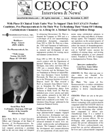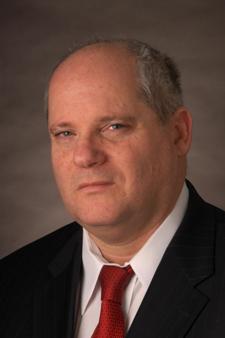CEOCFO-Members Login
Become A Member!
Pro-Pharmaceuticals, Inc.
(PRW-AMEX)
Print Version

|
This is a printer friendly page!
With Phase II Clinical Trials Under Way To
Support Their DAVANAT® Product Candidate, Pro-Pharmaceuticals Is On Their
Way To Realizing Their Vision Of Utilizing Carbohydrate Chemistry As A Drug
Or A Method To Target Deliver Drugs

Healthcare
Drugs - Generic
(PRW-AMEX)
Pro-Pharmaceuticals, Inc.
7 Wells Avenue
Newton, MA 02459
Phone: 617-559-0033

David Platt, Ph.D.
Co-Founder, Chairman, CEO and
Member of the Scientific Advisory Board
Interview conducted by:
Lynn Fosse, Senior Editor
CEOCFOinterviews.com
Published - November 9, 2007
BIO:
David Platt, Ph.D.
Chief Executive Officer, Chairman of the Board,
Member of the Scientific Advisory Board
David Platt, Ph.D., is Chief Executive Officer and Chairman of the Board of
Directors of Pro-Pharmaceuticals, Inc. (Amex: PRW), an early stage
pharmaceutical company pioneering a paradigm shift in the way new drugs are
designed by advancing Glycoscience. Dr. Platt co-founded the Company in 2000
and is a co-developer of its core nanotechnology, carbohydrate therapeutic
compounds. From 1992 to 2000, Dr. Platt was a founder, CEO and Chairman of
SafeScience, Inc., a biotechnology company involved in research and
development of anti-angiogenesis products for treating cancer and immune
system diseases.
From 1991 to 1992, Dr. Platt was a research scientist with the Department of
Internal Medicine at the University of Michigan, Ann Arbor, and from 1988 to
1990 was a research fellow at Wayne State University and the Michigan Cancer
Foundation in Detroit (re-named Barbara Ann Karmanos Cancer Institute).
Previously, Dr. Platt was a research fellow at the Weizmann Institute of
Science, Rehovot, Israel. Dr. Platt received a Ph.D. in chemistry from
Hebrew University in Jerusalem. Dr. Platt earned a Bachelor of Engineering
degree from Technion in Haifa, Israel. Dr. Platt has published peer review
articles and holds many patents, primarily in the field of carbohydrate
chemistry. Dr. Platt co-edited and co-authored a new book “Carbohydrate Drug
Design” published by the American Chemical Society.
Company Profile:
Pro-Pharmaceuticals is a development stage pharmaceutical company engaged in
the discovery, development and commercialization of first-in-class
carbohydrate-based therapeutic compounds for advanced treatment of cancer,
liver, microbial, cardiovascular and inflammatory diseases. The Company's
initial focus is the development and commercialization of a new generation
of anti-cancer treatments using carbohydrate polymers to enhance the safety
and efficacy of chemotherapy agents. The Company's technology capitalizes on
the natural property of carbohydrates to increase the efficacy and reduce
the toxicity of chemotherapeutics; "rescue" drugs that were shelved for
toxicity or "half-life" issues; increase the solubility of existing drugs,
and develop carbohydrate polymers as new chemical entities. Founded in 2000,
the Company is headquartered in Newton, Mass.
CEOCFO: Dr. Platt, what was your vision
when you founded Pro-Pharmaceuticals and where are you today?
Dr. Platt:
“The vision of Pro-Pharmaceuticals is to utilize carbohydrate chemistry to
develop a target delivery platform to deliver chemotherapeutic agents.”
CEOCFO:
Where are you in the process?
Dr. Platt:
“We developed the first target delivery technology with a polysaccharide
compound called DAVANAT® which we use to target deliver chemotherapy drugs.
We are also developing other carbohydrate compounds to deliver
non-chemotherapy drugs. It is a method to improve the formulation of
different drugs and to increase efficacy. We are developing other
polysaccharide compounds that prevent inflammation of the kidney. We have a
polysaccharide compound that can prevent inflammation of the liver and a
polysaccharide compound that can prevent inflammation of the lungs.”
CEOCFO:
Please tell us about the carbohydrate technology.
Dr. Platt:
“There is a class of receptors on cells that are called lectins. These
receptors recognize polysaccharides or carbohydrates. We use these lectins
to help drugs penetrate into the cell. In the case of cancer cells, we
actually deliver the chemotherapy into the cancer cell while avoiding
healthy tissue. With other disease, there is a new generation of knowledge
about lectins and their role in different diseases. We use lectins to
inhibit the disease. We target different lectins on different cells.”
CEOCFO:
Where are you in the process of developing and commercializing DAVANAT®?
Dr. Platt:
“The first product candidate is DAVANAT®. We have two ongoing Phase II
clinical trials, one in colorectal cancer and one in biliary cancer. We have
excellent data that shows that we are exceeding our statistical mark. We
will continue to finish the two Phase II trials, and then with a corporate
partner, we plan to initiate a Phase III trial. This is our strategic
thinking. Our goal is that by year-end or early next year, we will be able
to introduce it as a product in different formulations. We will be able to
improve the toxicity profile of the drugs by selling DAVANAT® as a
formulation.”
CEOCFO:
Do you have a partner in mind or how do you get that out?
Dr. Platt:
“We are in the process of identifying potential partners. We are in various
stages of negotiations now we believe that we will announce a partner next
year.”
CEOCFO:
Is there much work being done in this area by other companies as well?
Dr. Platt:
“As far as we know, we are the only one that is utilizing polysaccharide as
a target delivery to improve chemotherapy drugs. I do not know of any other
entity that is doing something similar.”
CEOCFO:
You have a very unique approach then.
Dr. Platt:
“It is a unique approach. As far as we know, we are the only ones.”
CEOCFO:
I know you are targeting colorectal cancer with one of your two Phase II
trials. Why did you decide to go in that area first?
Dr. Platt:
“The selection of colorectal cancer was important because it is second
largest killer in cancer indications, and because 5-FU is one of the most
widely used chemotherapies and it is used in the treatment of colorectal
cancer. We are using 5-FU a case study. DAVANAT® can be used with other
chemotherapies and in other indications such as biliary cancer.”
CEOCFO:
Development is expensive; what is the financial picture today?
Dr. Platt:
“Right now, we are raising money, which we stated in a press release. The
company needs money to continue operations. According to our burn rate, we
do not need much to move our operations forward. I believe that the
corporate partner will help fund next year’s operation.”
CEOCFO:
Is the medical community accepting of the concept or is it a hard sell to
get the concept across?
Dr. Platt:
“When you have a new technology, the medical community wants to see opinion
leaders. We have several distinguished opinion leaders on our medical
advisory board. We are pioneering a new concept in the way drugs are
designed. We are adding a polysaccharide to improve dramatically or reduce
toxicity or existing modalities of treatment. However, the results are
starting to show up. We have injected to date more than 70 patients. More
patients will be coming into our two ongoing trials. The medical community
will be more receptive when they see the data from the completed Phase II
trials. At the end of the day it is about the data, once we announce final
data like we did in Phase I, we plan to submit it to conferences such as
ASCO.”
CEOCFO:
What about the investment community?
Dr. Platt:
“The investment community right now is not as receptive to the technology as
we believe they should be. They are looking for validation such as a
corporate partner. The company also was not established through the
traditional funding mechanism. It was initially funded by “friends and
family” and then became a public company through a reverse merger. There was
no institutional equity early on. Only in the last four years have we
reached out to institutions. There is currently one analyst who initiated
research coverage. Our goal is to generate more interest by analysts and
professional investors. I believe that corporate partners and continued
advancement in the clinical trials will peak their interest.”
CEOCFO:
Why should potential investor look at the company now?
Dr. Platt:
“Potential investors should understand the large implication of using
polysaccharides in any drug. For a company like Pro-Pharmaceuticals, if we
improve colon cancer therapies by using polysaccharides in combination with
chemotherapies, that is a huge market opportunity. For example, the current
standard-of-care is Leucovorin, 5-FU and Genentech’s AVASTIN®, that
combination has improved results, however, patient’s are experiencing
toxicity issues. By adding our polysaccharide to this regimen, we have
significantly reduced the toxic side effects. It is a question of more money
and to get more patients to show statistically that our compound improves
the current standard-of-care.”
CEOCFO:
In closing, what should people take away when they read this interview and
what should they remember most about Pro-Pharmaceuticals?
Dr. Platt:
“They should remember that we are a new class of technology with the first
application in the oncology market. We have the potential to be a new class
in other diseases like fibrosis. We have demonstrated, in pre-clinical
animal studies that we can inhibit and reverse fibrosis. It is a major
inflammatory disease. It affects more than 150 million people worldwide. The
only effective treatment is a liver transplant. In my opinion,
polysaccharides are the future of target delivery for certain major
diseases. The most successful polysaccharide drug to date in HEPARIN. We are
following these footsteps. Polysaccharides can be effective remedies as
antibiotics, delivery, drugs and the major feature will be the lack of
toxicity within the modality.”
disclaimers
Any reproduction or further distribution of this
article without the express written consent of CEOCFOinterviews.com is prohibited.
|

